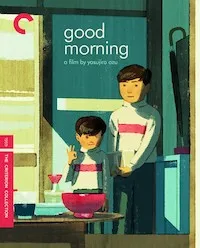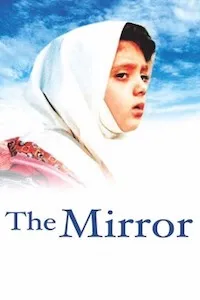
Readers Will Love the Criterion Channel
There have been some wonderful books released this year. Isabel Wilkerson’s Caste: The Origins of Our Discontents is supposed to be a new American classic. Hilary Leichter’s Temporary was a clever satire about the nature of work. I also loved Jenny Offill’s Weather, and can’t wait to read Marilynne Robinson’s Jack, Natasha Trethewey’s Memorial Drive, Raven Leilani’s Luster, Maggie O’Farrell’s Hamnet, Elena Ferrante’s The Lying Life of Adults, and Allie Brosh’s Solution and Other Problems. I’ve already read Susanna Clarke’s Piranesi, and, oh man! It’s so good, and a perfect book for our long, lonely days.
So many new and great books, but their availability has been limited. Libraries have been closed and their budgets slashed, books are expensive, online ebook borrowing has had weeks-long wait times. It’s not an easy time to be a reader. And, personally, I’ve been languishing within a book slump. I’ve been reading, but not reading well.
At the beginning of the pandemic, sequestered in my house with no where to go, I imagined I would read a lot of books. I have hundreds of unread books on my shelves, and with libraries closed I was hoping to get a good chunk of those books read. But it’s been impossible to concentrate. I’ve been so easily distracted. I read a page, then pick up my phone and read something horrifying in the news. Reading is usually meditative, but sitting alone with a book has felt too lonely, my nerves too on edge.
So, other than collapsing in despair and frustration, I’ve tried to find outlets that aren’t reading, but are reading adjacent. You may have already heard of the Criterion Channel. If you’re not familiar, it’s a movie streaming service that curates art house films, classic cinema, and films from around the world that can be streamed for $10.99/month. There are special features and interviews, and the movies are collected thematically and rotated each month so there’s always something new in the rotation. You can browse through their 2000+ film catalog here.
As my reading slump persisted, I felt comforted by these movies. I watched movies that I’d never heard of, but are considered some of the greatest films ever made. Like, Yasujiro Ozu’s Tokyo Story, Luis Bunuel’s Belle de Jour, Akira Kurosawa’s Rashomon, Marcel Camus’s Black Orpheus, Kenji Mizoguchi’s Ugetsu, Agnes Varda’s Vagabond, and Andrei Tarkovsky’s Stalker. I gobbled these movies up within a matter of weeks, cramming in two or three a day. (QUICK NOTE: Tarkovsky movies are very long and heavy, so probably plan on watching only one movie that day.) I still wasn’t reading, but I felt fairly content within my book slump.
And before it seems like I’ve abandoned books for film, let me assure you: there are a ton of hat tips to literature on the Criterion Channel. Authors like Jhumpa Lahiri, Megan Abbott, and Marlon James have contributed to the “Adventures in Moviegoing” series where artists talk about their most formative experiences with cinema. The films they recommend are on the channel, so you can add them to your list after they’ve convinced you to watch them. You will quickly find your “to watch” list rivaling your “to read” list, but you can thank me later.
Marguerite Duras, author of The Lover, wrote a screenplay for the French New Wave film, Hiroshima mon amour. Like her most famous novel, the movie is about an affair between two people in Hiroshima after the war. It’s also about memory and tragedy, and how we endure beyond trauma.
Antoine de Saint-Exupery, author of The Little Prince, also wrote the screenplay for the delightful 1930s French movie Anne- Marie, about a young woman who wants to be a pilot.
There are also great movie adaptions that *might* be better than the book. For instance, Rashomon is based on a short story by Ryūnosuke Akutagawa; Tarkovsky’s Solaris is based on a science fiction novel by Stanislaw Lem, while Stalker is based on the book Roadside Picnic (and after watching it, I imagine Jeff VanderMeer’s Annihilation was based on this story, as well). There’s also The Lonely Passion of Judith Hearne which is based on the book by Brian Moore (the movie features Maggie Smith!); Purple Noon features shirtless Alain Delon and is an adaption of The Talented Mr. Ripley; and the sexy La Pianiste is based on the Nobel Prize–winning Austrian novel, The Piano Teacher. These are only a few examples, there are so many more!
I originally planned to only keep the service long enough to watch Wong Kar-wei’s In the Mood for Love. It takes place in 1960s Hong Kong and is about two neighbors whose spouses are having an affair, and are slowly drawn together through shared loneliness. But I loved the movie so much that I decided to keep the service.
In fact, if I had to, I’d get rid of every streaming service I had before I’d get rid of the Criterion Channel. I value it that much.
A 2000+ movie catalog might seem daunting, so I’ll recommend three films that I think would be a good place to start if you’re like me, and are a newbie to the cinephile club.
If you enjoy Wes Anderson’s movies especially (Moonrise Kingdom), try Ozu’s Good Morning, about two young boys in Japan who go on a hunger strike because their parents won’t buy them a television. It’s a heartwarming film with a lot of great fart humor. Along with Good Morning, I would recommend all of Ozu’s collaborations with the actress Setsuko Hara, which include Late Spring, Tokyo Story, Early Summer, and Late Autumn. If you’re looking for movies that are going to make you smile and cry (maybe at the same time), definitely start with his films.
If you loved Sophia Coppola’s The Virgin Suicides, you’ll probably love Peter Weir’s haunting Picnic at Hanging Rock. This Australian film, based on the book of the same name by Joan Lindsay, is about the disappearance of three girls and their chaperone during a picnic on St. Valentine’s Day. The entire area is searched and mysterious things begin to happen to people who are exposed to the last place the girls were seen. Like The Virgin Suicides, Picnic at Hanging Rock is a bit of a dream world with young girls dressed in flouncy white school uniforms, straw hats, and a flutey film score. If you don’t expect explanations, I think you’ll really enjoy this film.
The third movie I’ll recommend is Jafar Panahi’s The Mirror. This is an Iranian film about a young first grader named Mina who begins to navigate the streets of Tehran alone after her mother forgets to pick her up from school. This harrowing movie becomes a bit terrifying as you watch this very small girl, with a cast on one arm and a school bag slung over the other, cross streets in traffic that does not stop for pedestrians. But Mina is a great character whose sonorous voice never wavers, as she’s overlooked and led astray through circuitous streets of congested traffic. There’s also a very fun twist in the film that I won’t spoil.
I have not made much of a dent in the books I hoped to read during this impromptu time spent at home. I have been reading, but more slowly, and deliberately. If I only read a few books this year, that’s okay, because I have movies to fill in those gaps.
In a time of a global pandemic, when we’re all distracted, trapped in our homes, and unable to travel, it’s nice to feel transported for just 90 minutes to a different time and place.
Have I convinced you?
Be well, dear readers.
















